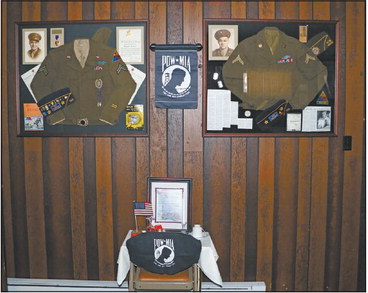POWs remembered for sacrifice to their country


By Ginna Young
Although they may be gone, they are not forgotten, as the families of Cadott community members William “Bill” Scheidler and Frank N...


By Ginna Young
Although they may be gone, they are not forgotten, as the families of Cadott community members William “Bill” Scheidler and Frank N...